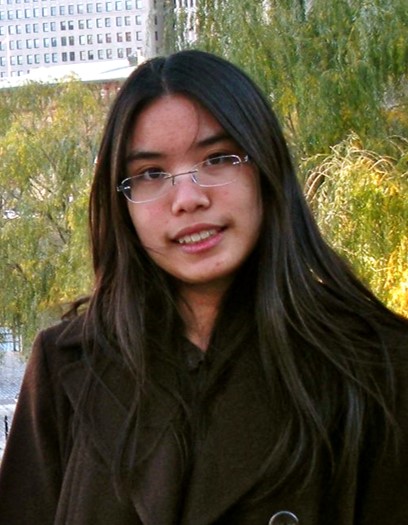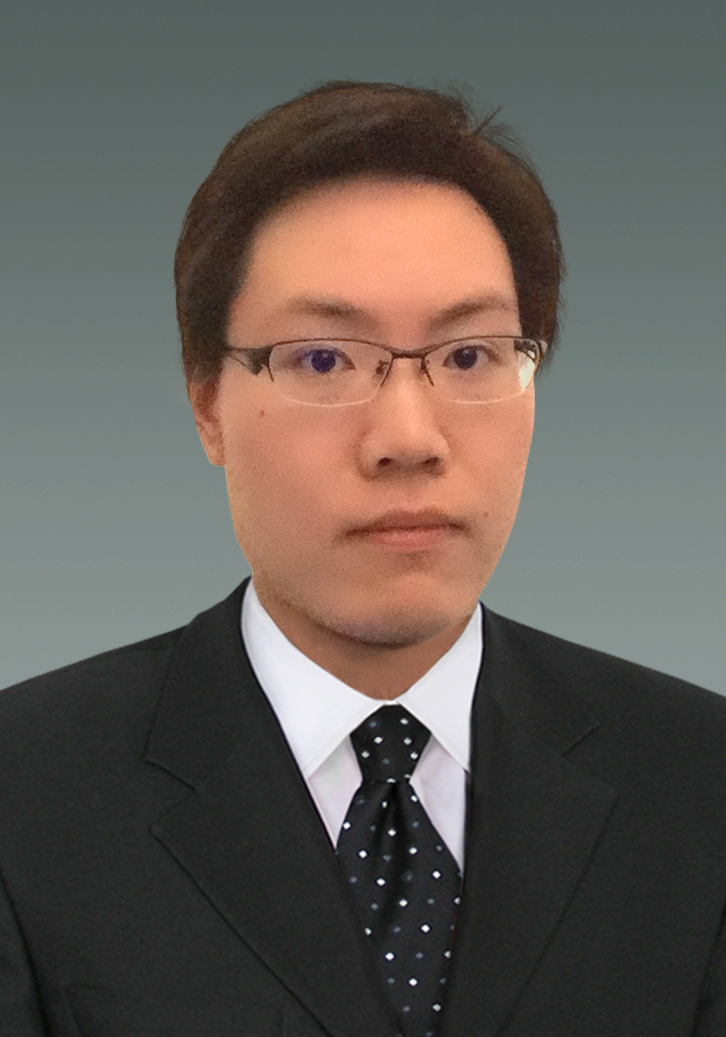This award, from Cornell’s Office of the Vice Provost for Research (OVPR), will support research aimed at extending the imaging depth limits of optical coherence tomography (OCT) and three-photon microscopy (3PM) by leveraging both computational and hardware adaptive optics. We are collaborating with the Xu Lab to demonstrate this approach for multimodal OCT and 3PM deep in the mouse brain.
April 2016: The group welcomes new PhD student Siyang Liu
March 2016: Han wins Hamamatsu Best Paper Award!
Han Tang wins one of the two Hamamatsu Best Paper Awards ($500 each) for her talk and proceedings manuscript “GPU-based computational adaptive optics for volumetric optical coherence microscopy” at the SPIE Photonics West BIOS 2016 conference “High-Speed Biomedical Imaging and Spectroscopy: Toward Big Data Instrumentation and Management.”
Well done Han and co-authors!
Tang H., Mulligan J.A., Untracht G.R., Zhang X. and Adie S.G, “GPU-based computational adaptive optics for volumetric optical coherence microscopy”, SPIE Photonics West, San Francisco, 13-18 February 2016.
Feb 2016: Prof. Adie gives invited talk at SPIE Photonics West
This was the first Photonics West conference for the group and we had 3 presentations:
Invited talk: Adie S.G. and Mulligan J.A., “Computational adaptive optics for broadband interferometric tomography of tissues and cells”, SPIE Photonics West, San Francisco, 13-18 February 2016.
Tang H., Mulligan J.A., Untracht G.R., Zhang X. and Adie S.G, “GPU-based computational adaptive optics for volumetric optical coherence microscopy”, SPIE Photonics West, San Francisco, 13-18 February 2016.
Mulligan J.A. and Adie S.G., “Computational point spread function engineering for optical coherence tomography (poster presentation)”, SPIE Photonics West, San Francisco, 13-18 February 2016.
November 2015: The group welcomes new PhD student Nichaluk Leartprapun
 Nichaluk (Nikki) Leartprapun is a PhD student in Biomedical Engineering. She has an M.S. in Bioengineering Innovation and Design from Johns Hopkins University, and a B.S. in Biomedical Engineering from Brown University. Her research in the group is focused on the development of optical coherence elastography for cancer research.
Nichaluk (Nikki) Leartprapun is a PhD student in Biomedical Engineering. She has an M.S. in Bioengineering Innovation and Design from Johns Hopkins University, and a B.S. in Biomedical Engineering from Brown University. Her research in the group is focused on the development of optical coherence elastography for cancer research.
September 2015: Jeff wins GAANN Fellowship!
Jeffrey has just been selected to receive a GAANN Fellowship…congrats Jeff!
This one-year Graduate Assistantships in Areas of National Need (GAANN) Fellowship is funded by a training from the US Department of Education. The goal of this grant is to increase the number of well-trained BME PhDs, with an emphasis on promoting diversity and developing the teaching skills of GAANN Fellows.
September 2015: Jeff and Gav’s paper accepted for publication!
Jeff and Gav’s paper, Emerging Approaches for High-Resolution Imaging of Tissue Biomechanics with Optical Coherence Elastography, has been accepted for publication in the IEEE Journal of Selected Topics in Quantum Electronics!
Congrats to all co-authors…this is the group’s first journal paper! An Early Access version of the paper can be found here.
June 2015: New paper in Nature Photonics
The new paper, Computational high-resolution optical imaging of the living human retina, demonstrates OCT imaging of human retinal photoreceptor cells without the need for hardware adaptive optics (HAO). Retinal imaging, the primary application of OCT, can be significantly improved through the use of HAO technology, originally developed for astronomy to compensate for atmospheric turbulence (that manifests as the ‘twinkling of stars’). Hardware AO has been used to to correct aberrations of the human eye and resolve photoreceptor cells, however it’s application in the field is limited due to the expensive, elaborate and bulky optical systems that are needed.
This paper is a collaboration with researchers at the University of Illinois at Urbana-Champaign, and builds on the computational adaptive optics work of Prof. Adie while he was a postdoc in the Boppart lab at UIUC.
A key result of the paper is that computational methods for aberration correction (with appropriate motion correction algorithms) can be applied in highly dynamic living samples – even during fixation the human eye constantly undergoes rapid micrometer-scale motions. Additionally, the post-data-acquisition capability of computational adaptive optics means that, unlike with hardware adaptive optics, the correction does not have to be optimized at the time of imaging. This allowed us to perform separate spatially-localized aberration corrections across the relatively wide field-of-views seen in the image mosaics in the main paper and Supplementary Information.
June 2015: Prof. Adie gives invited talk at ECI Advances in Optics conference
Prof. Adie’s talk at ECI Advances in Optics for Biotechnology, Medicine, and Surgery XIV, was entitled Computed Optical Coherence Tomography of Biological Tissues and Cells.
In addition to cutting-edge science presented by leading researchers around the world, providing a glimpse into the near future of Biomedical Optics, the conference was also a great opportunity to enjoy the magnificent outdoors of Vail Colorado (see image below taken during a 3-mile hike up the mountain).
The full speaker list and talk titles can be found on the ECI conference program.
May 2015: Congratulations to our prize-winning ECE M.Eng students!
Congrats to Yuan Yao, who took out the overall first place across all ECE M.Eng posters, and the winner of the Electronic Devices & Materials category! Her project is a collaboration with Prof. Amit Lal’s SONICMEMS group. Yuan’s poster was entitled Ultrasonic Beamforming and Steering for Acoustic Radiation Force Optical Coherence Elastography
Congrats to Xihao Zhang and Han Tang (the “GPU Team”) and Xiaochan Zong who presented the winning posters under the Signals and Communications category!! The GPU team’s poster was entitled GPU-based Real-Time Processing for Optical Coherence Tomography, and Xiaochan presented a poster entitled Multi-scale Optical Coherence Tomography: Comparing Computational and Hardware Methods of Reducing Numerical Aperture.
More information (including the winners of other categories and pictures of the poster session) can be found under the Recent News section of the ECE webpage.

